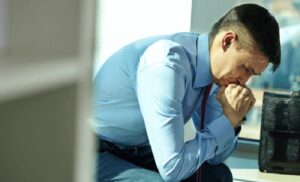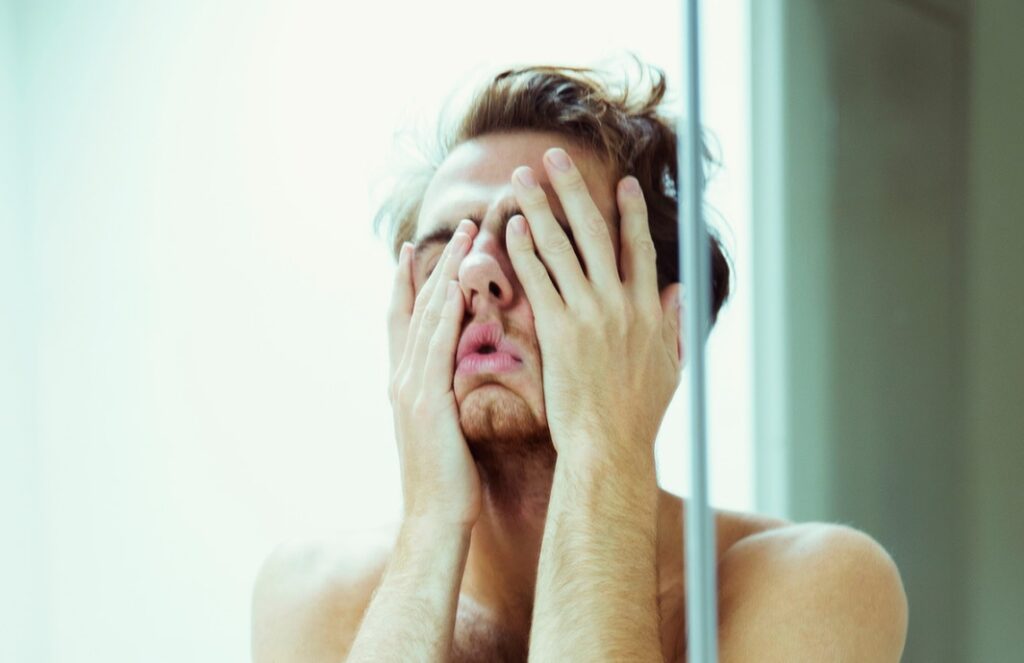This is called Testosterone Deficiency Syndrome (TD) or Low Testosterone (Low-T). Deficiency means that the body does not have enough of a needed substance. A syndrome is a group of symptoms that, together, suggest a disease or health condition.
Low testosterone (male hypogonadism) is a condition in which the testes (testicles, the male reproductive glands) do not produce enough testosterone (a male sex hormone).
A number of physical changes can happen to your body if you have low testosterone levels. Testosterone is sometimes referred to as the “male” hormone. It helps increase muscle mass, leads to body hair, and contributes to an overall masculine form.
Testosterone is a sex hormone often associated with males, though females have small amounts. If a male has a low level of testosterone, the symptoms can include erectile dysfunction, and reduced bone mass and sex drive.
Some men have low testosterone levels
This is called Testosterone Deficiency Syndrome (TD) or Low Testosterone (Low-T). Deficiency means that the body does not have enough of a needed substance. A syndrome is a group of symptoms that, together, suggest a disease or health condition.
Testosterone replacement therapy may contribute to or cause sleep apnea. Sleep apnea is a serious medical condition that causes your breathing to stop and start repeatedly while you sleep.
Testosterone deficiency can have quite different causes depending on the age of the man affected.
On the one hand, increased diagnosis of low testosterone is driven by an aging population, less stigma, and more precise tests. But there’s another big reason why men come to Mezitis’s office for a testosterone test.
Although testosterone loss is common as men age, it is often associated with diabetes, abdominal obesity, sexual dysfunction, depression, and other adverse conditions.
Causes of Low Testosterone in Men
For younger men, a drop in testosterone levels can be caused by some illnesses, including type 2 diabetes, chronic liver or kidney disease, COPD or another lung disease, or pituitary gland problems, according to Dr. Samadi.
In men, testosterone is produced in the testicles where it also stimulates sperm production. Production of this hormone ramps up during puberty and begins to slowly decline after the age of thirty.
Organ Damage or Failure: If there is injury/damage to an organ responsible for producing or releasing testosterone, low testosterone can occur.
In addition to natural aging, stress, excessive alcohol consumption, marijuana use, chronic opioid use, soy intake and hormones present in food may all affect a man’s testosterone levels. Low testosterone may also be caused by testicular cancer, early or late delayed puberty, and kidney disease.
What Are the Symptoms of Hormonal Imbalance in Men?
The most common symptoms of hormonal imbalance in men are often disregarded until they impact the quality of life so severely that treatment is aggressively sought out. Some of the symptoms of hormonal imbalance in men include:
- Low Energy

- Sleeplessness
- Weight Gain
- Brain Fog
- Decreased Sexual Performance
- Inability to Maintain Muscle Mass
- Low Mood
- Anxiousness
- Elevated Blood Sugar
- Abnormal Heart Conditions
- Decreased Bone Density
Testosterone deficiency is a very specific clinical condition that is defined by the presence of a set of specific signs and symptoms that occur as a result of decreased production of testosterone by the testes in men,” says Dr. Bhasin.
A recent study on the effects of testosterone treatment in older men showed a small increase in sexual function with testosterone treatment (in some cases for less than 12 months), but no significant improvement in mood, vitality, or physical function.
For most men, testosterone levels peak between the age of 20 and 30. It’s no coincidence that men in their 20s tend to be chock full of sexual energy, which can be directly tied to their hormones. As those men age, their T levels begin to gradually decline.
Low Testosterone Treatments For Men
Given by injections, gels, lotions, creams, patches, or tablets, are used to treat low testosterone. It’s unclear whether testosterone therapy has any benefit for older men who are otherwise healthy, and testosterone therapy may even be harmful in some situations.
Injections
The classic form of androgen replacement is injection therapy using one of the long-acting testosterone preparations such as testosterone enanthate or testosterone cypionate. Both of these agents have been widely used for many years and are the most cost-effective method of male hormone replacement.
Oral/Buccal (by mouth)
The buccal dose comes in a patch that you place above your incisor (canine or “eyetooth”). The medication looks like a tablet but you should not chew or swallow it. The drug is released over 12 hours. This method has fewer harmful side effects on the liver than if the drug is swallowed, but it may cause headaches or cause irritation where you place it.
Testosterone Boosters
Some types of herbal supplements claim to be “testosterone boosters.” The makers of these products claim that the ingredients help to increase levels of testosterone. However, there isn’t enough research to support its effectiveness.
Gels
Testosterone is absorbed directly through the skin when you apply the gel once a day. AndroGel, Axiron, and Fortesta also come in a pump that delivers the amount of testosterone prescribed by your doctor. Natesto is a gel applied inside the nose.
Pellets
Implanted under the skin surgically every 3–6 months for consistent and long-term dosages. Side effects: pellet coming out through the skin, site infection/ bleeding (rare), dose decreasing over time, and hypogonadism symptoms possibly returning towards the end of the dosing period.
Bottom Line
Medically-diagnosed testosterone deficiency is treated with testosterone therapy, which is prescribed by a doctor. Once started, testosterone therapy is usually continued for life, and needs to be checked regularly.
The exact treatment options for your man will depend on the suspected cause of his low testosterone. For example, if there’s an underlying health condition to blame, such as a problem with the pituitary gland, treating the root cause will generally solve the problem.
Men can also counteract the effects of low testosterone levels by losing weight and remaining physically active. Medications for erectile dysfunction and to help with sleep disturbances may also be beneficial, depending on the situation.

